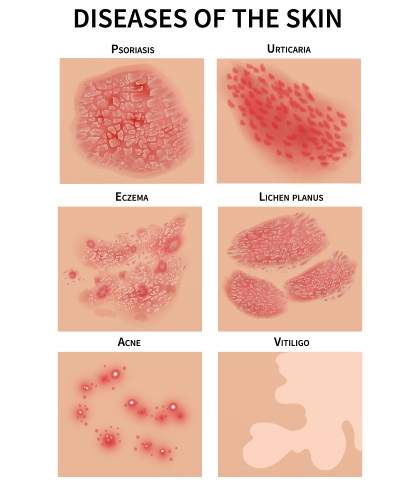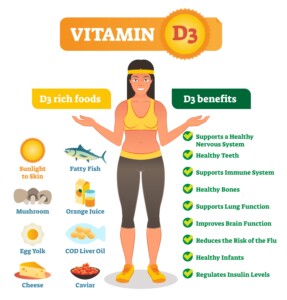Skin conditions such as eczema and psoriasis can cause discomfort and affect the quality of life for those who experience them. While both conditions can result in itchy, red, and inflamed skin, it’s important to understand the differences between eczema and psoriasis in order to seek appropriate treatment. Let’s explore these two conditions and shed light on their unique characteristics.

Eczema: The Basics
Eczema, also known as atopic dermatitis, is a chronic inflammatory skin condition that often begins in childhood but can affect people of all ages. It is characterized by dry, itchy skin, redness, and the development of rashes. Eczema is typically triggered by a combination of genetic and environmental factors. Common triggers include allergens, irritants, stress, and climate changes. Eczema tends to flare up periodically and can be managed with proper skincare, moisturizers, and topical treatments.
Psoriasis: Understanding the Condition
Psoriasis is an autoimmune skin disorder that results in the rapid overproduction of skin cells. This excess growth leads to the formation of thick, scaly patches on the skin. Psoriasis can occur at any age and is thought to be influenced by genetic and immune system factors. The most common type of psoriasis is plaque psoriasis, which presents as raised, reddish patches covered with silvery scales. Other forms of psoriasis include guttate, inverse, pustular, and erythrodermic psoriasis. Psoriasis flare-ups can be triggered by factors such as stress, infections, certain medications, and skin injuries.
Distinguishing Features: Eczema vs. Psoriasis
- Appearance: Eczema typically presents as patches of dry, itchy skin that may be red, inflamed, and scaly. The affected areas can become cracked, weepy, and prone to infection. Psoriasis, on the other hand, manifests as raised, thickened patches with distinct borders and silver-white scales.
- Location: Eczema commonly affects areas such as the face, neck, inner elbows, and behind the knees. It can also appear on other parts of the body. Psoriasis often occurs on the scalp, elbows, knees, lower back, and nails. It can affect larger areas of the body, including the palms and soles of the feet.
- Itching: Intense itching is a hallmark of eczema and can be a significant source of discomfort. Psoriasis may also cause itching, but it is generally not as severe as in eczema.
- Triggers: Eczema flare-ups can be triggered by factors such as allergens, irritants, temperature changes, and stress. Psoriasis flare-ups may be triggered by infections, stress, certain medications, and skin injuries.
While eczema and psoriasis share some similarities, they have distinct characteristics that differentiate them. Eczema is a chronic inflammatory condition that results in dry, itchy skin, while psoriasis is an autoimmune disorder causing thick, scaly patches. Proper diagnosis by a healthcare professional is essential for determining the appropriate treatment and management strategies for each condition. If you suspect you have eczema or psoriasis, consult with a dermatologist for an accurate diagnosis and personalized treatment plan to help manage your symptoms effectively.
As an Amazon Associate we earn from qualifying purchases through some links in our articles.




